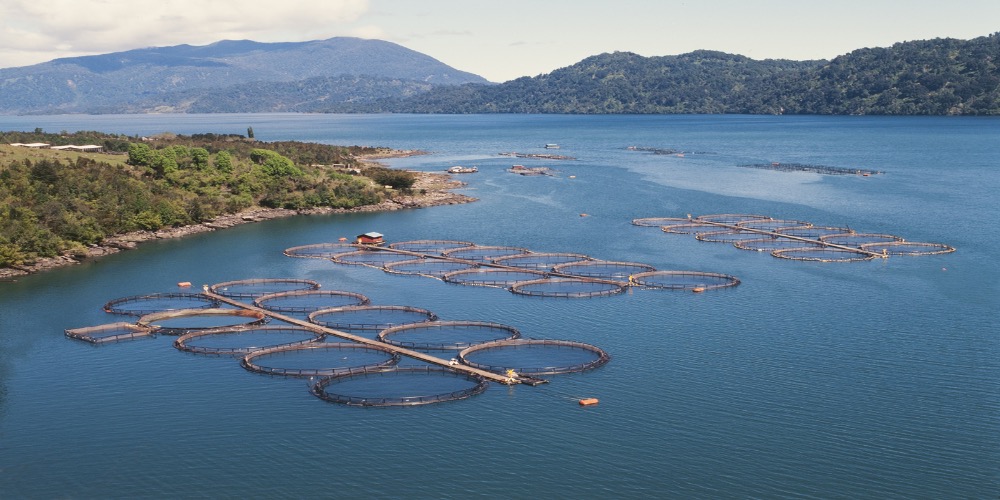
Chile expects 20% growth in halal certifications in 2022
The South American country has over 70 free trade agreements and exports mostly halal beef, salmon, dried fruits, and milk formula.
São Paulo: Chile’s halal authority expects a 20% growth in halal certifications, while aiming to expand the range of certified products to capitalise on a growing export market.
The Halal Certification Centre, known as Chile Halal, is looking to certify companies that produce raw materials and products used in the food industry, such as preservatives, food colourings, cleaning tools, detergents and nitric acid, used for cleaning dairy factories. The centre wants to certify the industry from end-to-end, according to Gonzalo Silva, lead auditor of the Halal Department at Chile Halal.
Chile has over 70 free trade agreements (FTAs) across five continents. Silva told Salaam Gateway that negotiations of FTAs with the United Arab Emirates and with the Association of Southeast Asian Nations (ASEAN) are making progress. ASEAN is an economic bloc that includes Brunei, Cambodia, Singapore, Philippines, Indonesia, Laos, Malaysia, Myanmar, Thailand, and Vietnam.
“ASEAN is a very promising market for future exports, not only for Chile but for the whole world, because the middle class is growing, which demands more imported products. If the FTA with Southeast Asia is approved, we will have privileged fees, which will stimulate exports to these destinations, and consequently increase halal certification,” Silva said. The Asia-Pacific region has the largest Muslim population in the world, at over 985 million.
Silva explains that the public and private sectors must work together to advance the halal market. “A halal table was created with the government of Chile for them to understand the market better because it is also necessary to proceed with the phytosanitary licences of the countries you will export to, as well as the halal certification,” he said. Silva explains that one can’t go forward without the other, so joint work with the government is essential for Chile’s growing halal industry.
President-elect Gabriel Boric, who is considered left-wing, will be sworn in this March and the Chilean market is waiting for the new ministers to be announced, which will set the tone for the new government, according to Silva. Many are eager to find out if there will be any policy changes in foreign trade, he added.
Chilean beef
Over 60% of the companies certified by Chile Halal sell their products to China, the United States, Canada and the European Union, where there is a demand for halal certification of many raw materials. Around 80% of the beef meat sold to China is halal, Silva said. For now, the beef does not go to the Middle East, although Chile already has the phytosanitary license from the UAE. “The problem is [that] Chile has few heads of cattle compared to Uruguay, Argentina or Brazil, so we are not as competitive as other countries,” he said.
Frigorífico de Osorno (Frigosorno) is a beef slaughtering, butchering and processing plant with more than 70 years in the market. The head of exports at Frigosorno, Andrés Fernández, told Salaam Gateway that 100% of the beef sold to China is halal certified. “The China halal market is strong due to the large volumes they purchase. For them, [halal certification] is a fundamental requirement at the time of the negotiation and closing of the deal,” said Fernández.
The beef company exports 30% of its production. “The projection for this year is to continue in the same line of growth and to consolidate our global position as a meat supplier,” said Fernández.
Halal salmon
Most salmon companies in Chile are going halal as a response to market demand, Chile Halal's Silva said. “Fish farms often use pork hemoglobin or pork derivatives to feed the salmon, which affect the halal status of the final product,” he said, adding that the salmon feed is plant-based.
Chilean salmon farming company, Invermar, sells only halal-certified salmon – Salmon Salar and Salmon Coho, the two main species that the country produces. It covers the entire salmon production chain, raising the fish from eggs to processing the final product in gutting plants.
Around 30,000 tonnes of halal salmon are produced each year by Invermar and sold mostly abroad. Its whole production is halal, including the salmon feed, made without any forbidden additives or ingredients, according to Judith Santana, the company’s head of Management and Certifications System.
Most of the halal salmon is exported in fresh fillets to the UAE. Other markets include the US, Japan, Germany, Canada and Belgium.
Other halal products
Honey is another example of a food product that would not need halal certification, but many countries require the certificate to ensure that it is pure and not mixed with other ingredients or additives, Gonzalo Silva explains. The same is true for grape juice concentrates because enzymes or fermentation cannot be used, as they are exported mostly to Saudi Arabia.
“Dried fruits, predominantly plums and raisins, which are naturally halal, are washed with water. To be halal-certified, it must be clean, potable water,” he said. These products also may be brightened with glycerin, which should be of vegetable and not animal origin in order to be considered halal, he said.
Dairy formulas, breakfast cereals, food industry raw materials, such as tartaric acid (yeast), oils and essences, are also being halal-certified, according to Chile Halal. “A Chilean-based international company exported more than 18,000 tonnes of halal dairy formulas to the UAE last year,” said Silva. The dairy formulas are mostly powdered milk for children and lactose-free products. They also export halal dairy products to 13 other countries, such as Saudi Arabia, Qatar and Kuwait.
Another trend towards halal certification is food supplements. A plant-based natural supplement that is used to lower cholesterol is being certified and exported to the EU. “France, Germany and the UK are the European countries with the biggest Muslim populations. They are also very important halal markets for Chile and Latin America," Silva said.
© SalaamGateway.com 2021 All Rights Reserved

Bruna Garcia